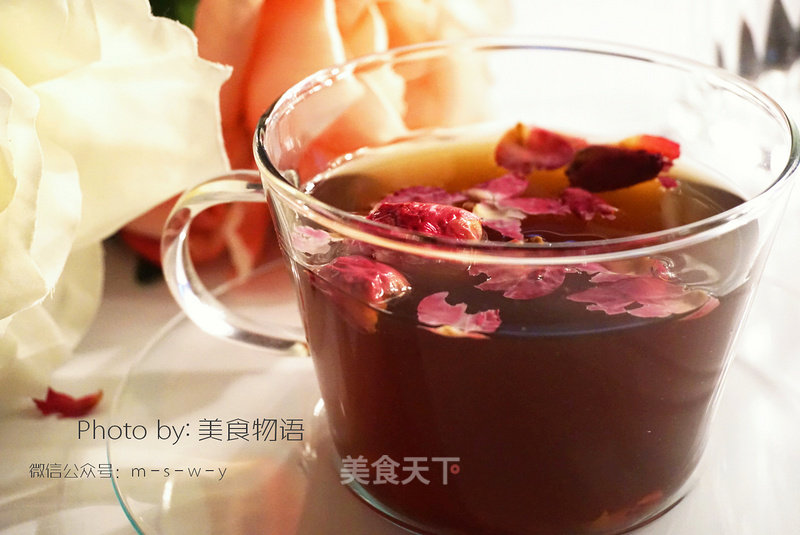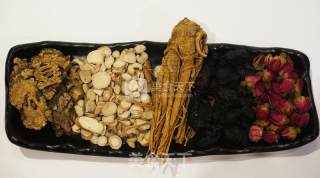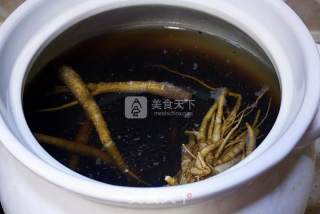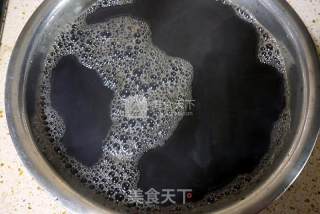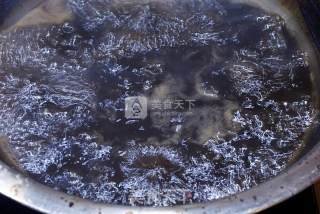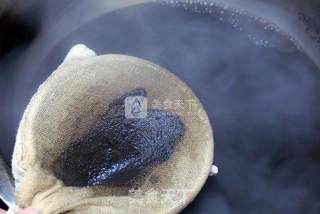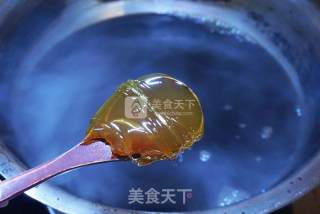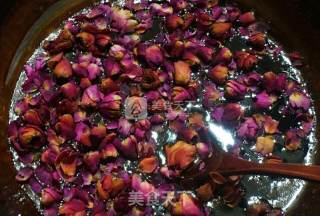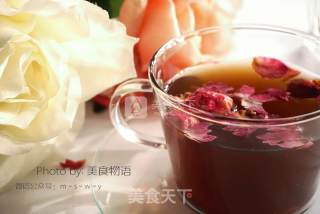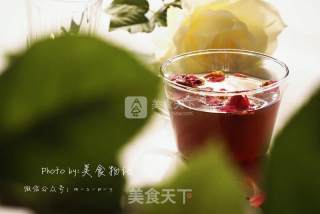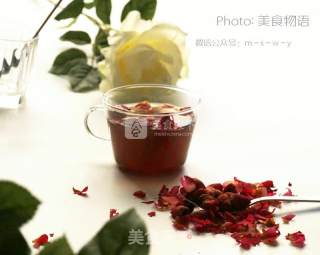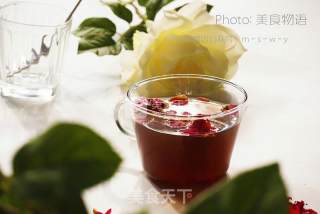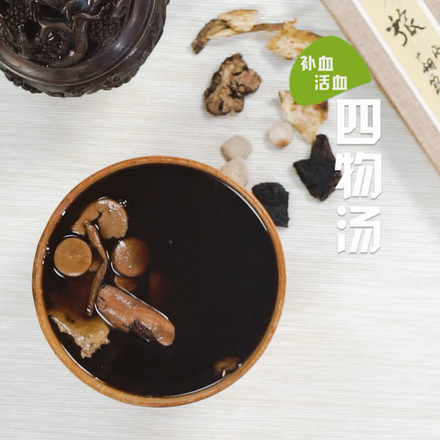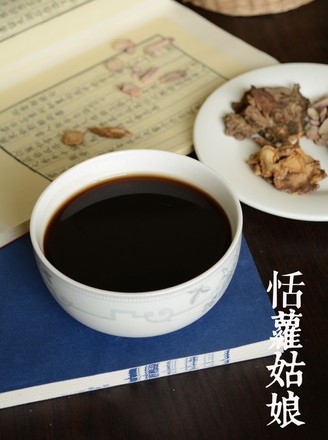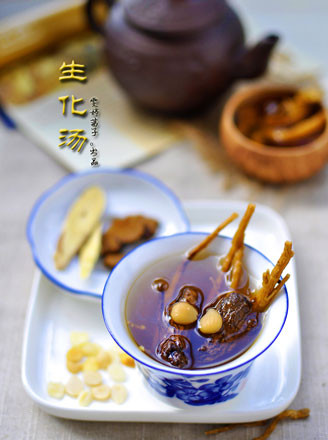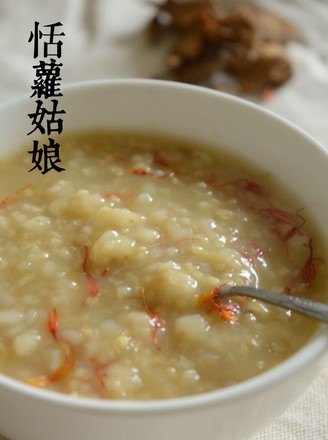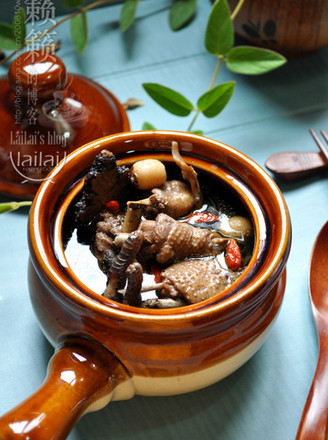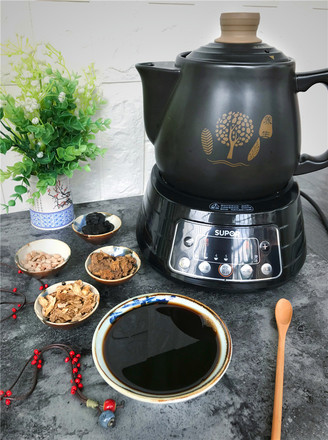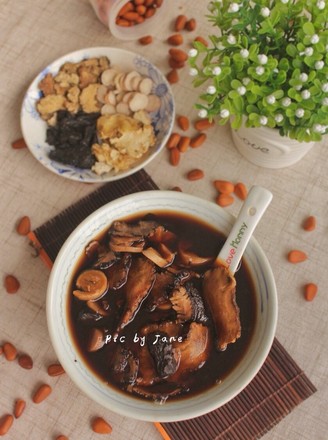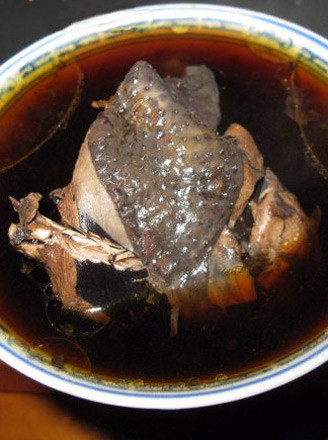Rose Siwu Soup
1.
Prepare all the ingredients, remove the stems of the roses and leave only the petals for later use.
2.
Soak chuanxiong, rehmannia, angelica, and white peony in 3000 grams of water for 8-10 hours.
3.
Bring Siwu and 3000g of water to a boil over high heat, then change to low heat, simmer for 2 hours, overflow the liquid medicine for later use. Then add 2000 grams of water, boil on high heat and change to low heat, simmer for 1.5 hours, overflow the liquid medicine for later use. Finally, add 1800 grams of water, boil on high heat and change to low heat, simmer for 40 minutes, overflow the liquid medicine for later use.
4.
Combine the three liquid medicines, pour into an open large pot, and collect the juice over high heat.
5.
Collect the juice for about 1 to 1.5 hours, filter out the foam on the surface, filter the concentrated medicinal juice with gauze to obtain a clear cream.
6.
Pour the obtained clear paste into an open large pot, add brown sugar (authentic brown sugar is darker in color), maltose (authentic maltose is very viscous and should not be stirred), collect the paste over a small fire, and keep stirring to prevent it from sticking to the pan.
7.
When honeycomb-shaped bubbles appear in the paste in the pot, use a chopstick to dip the paste onto the paper and drop water into beads to turn off the fire.
8.
Pour the stalked roses into the paste, stir evenly, pour it into a porcelain jar to cool, and keep it sealed and put it in the refrigerator.
9.
Siwu Decoction, a health decoction made from Chuanxiong, Angelica, Radix Paeoniae Alba, and Rehmannia glutinosa, is a classic health-preserving prescription with a history of thousands of years, and it is the first of the prescriptions for blood enrichment. It has been regarded as "the first prescription for women's health preservation" and "the holy medicine of women" by historical physicians.
10.
Regarding the origin of the name "Siwu Decoction", "Chengyi Reading" explains: Angelica is like the growth of spring; Chuanxiong is like growing in summer; White peony is like the convergence of autumn; Rehmannia is like the storage of winter, and the four herbs correspond exactly All things are transformed throughout the year, hence the name "Siwu Tang".
11.
Taking it regularly will help smooth blood flow, prevent cold hands and feet, make the complexion ruddy and smooth the skin, and slow down the aging of physiological functions.
12.
The cost is only a few bucks, and it can be used for about 1 month after a painstaking process, which is better than expensive chemical skin care products.
Tips:
Drinking method:
1. Every morning, take half a spoon and brew it with hot water.
2. It is not suitable to drink during menstruation, and resume drinking about 2 days after menopause.
3. Avoid use for pregnant women and hypertensive patients.
4. People with menorrhagia due to yin deficiency and blood heat are not suitable for drinking.

